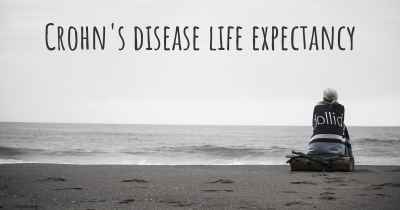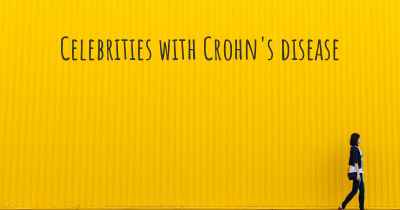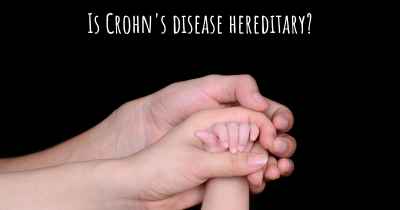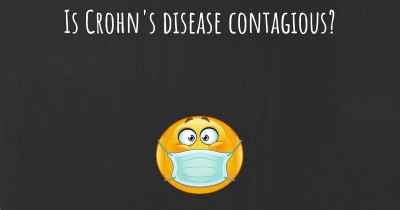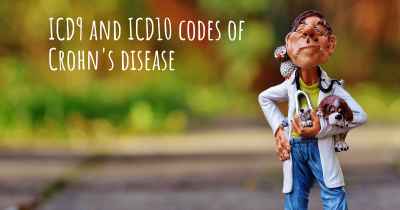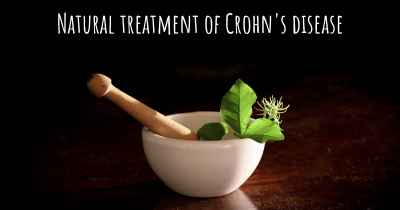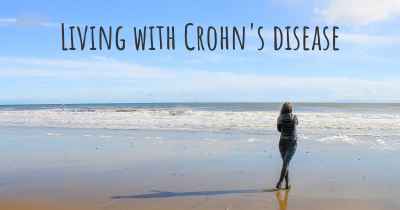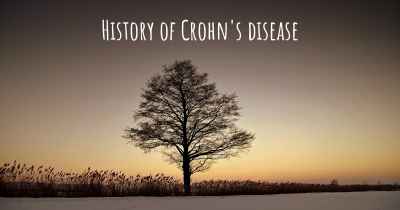5
Crohn's disease diet. Is there a diet which improves the quality of life of people with Crohn's disease?
Are you aware of a diet that can improve the quality of life of people with Crohn's disease? Is there a diet that is suggested to avoid when having Crohn's disease? See if there is a diet that can improve the quality of life of people with Crohn's disease, recommended and to avoid food when having Crohn's disease
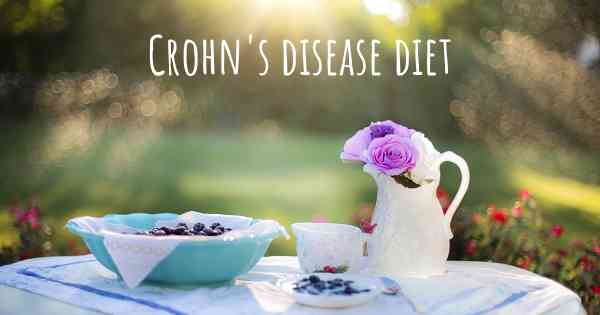
Diet can improve symptoms but it is a not a one size fits all illness. Avoid foods that are high in fibre, fried and processed food. No spicy food
Posted May 12, 2017 by Rori 1500
I have found that following the Paleo auto-immune diet has been very helpful
Posted Aug 29, 2017 by Yvette 1350
no
Posted Aug 30, 2017 by DANY 1700
Its very important to avoid acidic food. IBD is about inflammation of the gut . Once your GI is alkaline then the inflam reduces. Next is Gluten free and dairy free. Then reduce meat. If you imagine a horribly compromised gut , stricken and bleeding why would you put the hardest to digest material through it, this is madness. There are many more things like a little juicing to removed strain and also fasting to allow repair.
Posted Aug 31, 2017 by cyrus 2270
This is very controversial as there is no universal diet which is good for Crohn's and colitis sufferers as each of our bodies react differently to each type of food, I might eat something today and be fine, but if I ate it again in two days time my body may react differently to it. In my 40+ years as a sufferer is is and always has been trial and error with food.
Posted Sep 1, 2017 by Suzette Weston 700
Yes. Most people have a hard time with fruits and veggies. Most crohns people eat fatty foods.
Posted Oct 19, 2017 by Tfochtman 2000
Translated from spanish
Improve translation
This is also relative, I think that stress damages more than the food. But I think that if we aim to heal the intestinal microbioma with prebioticos and probiotics is a good alternative, which means healthy eating, vegetable, fermented, yoguth of kefir, fruits antioxidants. A kind of FODMAD and paleodieta.
Posted Feb 22, 2017 by Maria Mena 1020
Translated from spanish
Improve translation
In crisis or outbreak you should avoid the consumption of dairy, fats, foods with fibers, seeds (almonds, walnuts)
Posted Mar 2, 2017 by Fatima Baptista 1000
Translated from spanish
Improve translation
Healthy eating and equlibrado is good for any pathology.
Posted Mar 4, 2017 by Nakay 1000
Translated from spanish
Improve translation
Without a doubt avoiding Gluten is one of the best generic advice that can be given, as well as the goods are very refined, or foods chemically treated. it is also likely to be lactose intolerant.
The fibers and Fats are limited in the diet IBD
The fibers and Fats are limited in the diet IBD
Posted Mar 4, 2017 by Luis 1480
Translated from portuguese
Improve translation
I believe that in times of crisis it is good to avoid fats, sugars, condiments, red meats...
Posted May 4, 2017 by ALEXANDRE K TAVARES 1100
Translated from portuguese
Improve translation
In my case there is no restriction, however, each case is different, the patient needs to discover for itself what does or does not evil to his illness.
Posted May 5, 2017 by Marcel Correa 1000
Translated from portuguese
Improve translation
I do not believe that there is a diet that can cover all the patients of Crohn's/Colitis. But from my experience with the disease, you should avoid to the maximum, fried food, sweets in excess, milk and bread. Nor should we get close to soft drinks or alcoholic beverages.
Posted May 5, 2017 by Jivaneide 1120
Translated from spanish
Improve translation
There are people who stop taking gluten, but it has nothing to do with it. It is recommended not to comee many fried
Posted Aug 15, 2017 by Angelinebadal 2156
Translated from spanish
Improve translation
If of course there is scientific evidence that shows that diets rich in omega-3 fatty acids in relation to omega-6 will help to decrease the symptoms of inflammation, but as always it also depends on each person because there are foods that cause discomfort in some patients but not in others and then the patient has to eat what you know you can eat.
Posted Sep 1, 2017 by Miguel Cuevas 650
Translated from spanish
Improve translation
There is nothing shown, except try not to eat sugars or some fats , one commercial food, it is not advised , it depends on each patient
Posted Sep 7, 2017 by Jmes 910
Translated from portuguese
Improve translation
Eliminate products with casein, condiments,
Pepper, eggplant, black pepper, vegetables and fruit raw
Pepper, eggplant, black pepper, vegetables and fruit raw
Posted Sep 8, 2017 by Suzely Akemi 1000
Translated from portuguese
Improve translation
Diets the base for chicken, fish type salmon, vegetables, and fruit boiled, little sugar and zero sodas and candy, anything derived from milk, in my case use products without lactose
Posted Sep 11, 2017 by RITA 600
Translated from portuguese
Improve translation
Specific not
The person will be adapting
The person will be adapting
Posted Sep 12, 2017 by Paloma 1000
Translated from portuguese
Improve translation
Nutritional therapy in the presence of IBD has as its goal the control of symptoms, prevention and correction of malnutrition and various nutritional deficiencies, and reduction of sequelae in the long term, including the growth deficit in children and osteoporosis in adults.
The Active phase of the Disease
In this phase it is important that the power supply to assist in the control of symptoms such as diarrhea, abdominal pain, distention, and to prevent or reverse the loss of weight through the use of nutritional supplements suitable. The diet should be high calorie, by the increase of energy requirements as a result of inflammation, hiperprotéica, hipolipídica and normoglicídica with restriction of simple carbohydrates, and foods that cause flatulence. The content of fibers-insoluble and waste (lactose, for example) should be restricted, and the feed should be split in six to eight meals a day, containing little volume.
The Remission stage of the Disease
With the clinical improvement of the patient and the onset of the phase of remission, may be included in the simple carbs such as sucrose (in moderate amount), and lactose (gradually, if no intolerance), you should increase gradually the content of total fiber and insoluble diet, maintaining a moderate content of fat (especially polyunsaturated fatty acids omega-6). Calories should be appropriate to the patient's nutritional status.
Source: Diestel CF, Santos MC, Romi MD. Nutritional treatment in inflammatory bowel disease. Revista Hospital Universitário Pedro Ernesto. 2012;11(4):52-58
The Active phase of the Disease
In this phase it is important that the power supply to assist in the control of symptoms such as diarrhea, abdominal pain, distention, and to prevent or reverse the loss of weight through the use of nutritional supplements suitable. The diet should be high calorie, by the increase of energy requirements as a result of inflammation, hiperprotéica, hipolipídica and normoglicídica with restriction of simple carbohydrates, and foods that cause flatulence. The content of fibers-insoluble and waste (lactose, for example) should be restricted, and the feed should be split in six to eight meals a day, containing little volume.
The Remission stage of the Disease
With the clinical improvement of the patient and the onset of the phase of remission, may be included in the simple carbs such as sucrose (in moderate amount), and lactose (gradually, if no intolerance), you should increase gradually the content of total fiber and insoluble diet, maintaining a moderate content of fat (especially polyunsaturated fatty acids omega-6). Calories should be appropriate to the patient's nutritional status.
Source: Diestel CF, Santos MC, Romi MD. Nutritional treatment in inflammatory bowel disease. Revista Hospital Universitário Pedro Ernesto. 2012;11(4):52-58
Posted Sep 14, 2017 by Alessandra 700
Translated from spanish
Improve translation
Whenever I mention something about what works best for an IBD, I say as I've noticed. But as a result of the years with the disease, I've been cleaved in the subject "nutritional" and I have come to the conclusion that the diet that best goes to me, is the least "last". Soil eating dishes that are easy to digest.
Posted Sep 17, 2017 by Juan González 3251
Translated from spanish
Improve translation
There is not as such a diet ,but if it improves the take healthy things
Posted Oct 14, 2017 by Irene 3550
